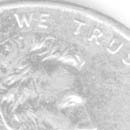I.O.U.S.A. (60 page)
Authors: Addison Wiggin,Kate Incontrera,Dorianne Perrucci
Tags: #Forecasting, #Finance, #Public Finance, #Economic forecasting - United States, #General, #United States, #Personal Finance, #Economic Conditions, #Economic forecasting, #Finance - United States - History, #Debt, #Debt - United States - History, #Business & Economics, #History
8/26/08 8:20:30 PM










Steve Forbes
Steve Forbes ran in the presidential primaries in 1996 and 2000 on a campaign to establish a fl at income tax in America. The editor - in - chief of
Forbes
magazine and president and CEO of Forbes, Inc., found the time in his very busy schedule in 2005 to write a book on this subject:
Flat Tax Revolution
(Regnery Publishing, 2005).
Q:
Mr. Forbes, in
Flat Tax Revolution,
you spoke about how taxes
breed corruption. What do you mean when you say taxes breed
corruption?
Steve Forbes:
Well, the Federal Income Tax Code is the biggest source of corruption in Washington. Politicians know it ’ s a source of power because of its complexity. If you sit on a tax - writing committee, you ’ re going be guaranteed political contributions for your election cycle. As a result, half the lobbying revolves around trying to put changes and amendments into the tax code. Each bill has literally hundreds of amendments. Nobody knows what they really mean. They ’ re for special interest, special things to change in the code which is why the code now has nine million words.
Politicians love it because it ’ s a source of power. You have to go to them to amend the code, get relief or hit your competitors. So they love it, but the American people pay a price for it.
Q:
People talk about the United States as an empire. Is the U.S. an
empire? Why or why not?
Steve Forbes:
Well, the United States is an empire of freedom. We think of
empire
as imperialistic cultures like the Roman Empire or the Persian Empire. But the United States is different. It is an empire of the human spirit where people search for opportunities.
The essence of the American Dream is allowing each of us and all of us the opportunity to discover and then develop our talents 245
c18.indd 245
8/26/08 7:20:56 PM
246 The
Interviews
to the fullest. That is what opportunity is about. As a result, the United States is not only a large land mass and one of the most populous countries in the world; it is also a place where people from all around the world come to and then, in a generation or two, become as American as anyone else. No other entity has been able to do that. Look around the world; look at the breakup of the Soviet Union, the confl ict in Lebanon, ethnic and communal fi ghting in other parts of the world. The United States has avoided those problems because we do have these basic principles, and when we adhere to them, we become part of the American empire.
Q:
There ’ s this great experiment in freedom, and the republic has,
particularly in recent years, had an extraordinary explosion in
borrowing. How much of a threat is the national debt to the
sovereignty of the country?
Steve Forbes:
Well, the national debt in and of itself is not the problem to the sovereignty of the country. When you add up all the assets of the nation, it ’ s over a hundred and sixty trillion dollars.
The threats are the unfunded liabilities of Social Security, Medicare, Medicaid, which account for tens of trillions of dollars, about eight to ten times the size of the national debt. That fact doesn ’ t show up on the politicians ’ balance sheet. They don ’ t want you to know what a mess they ’ ve created. If you had those kind of liabilities in the private sector, you ’ d be joining the ranks of Enron, marching off to whatever facility where you will be a guest of the state. That is the real problem. I believe that we can deal with Social Security and with the problems of healthcare, but that is where the real debt is and that ’ s what the politicians don ’ t want us to talk about.
Q:
Looking back at twentieth - century America, can you point to
some of pivotal moments when the United States government ’ s
monetary policy created this sort of economic mess?
Steve Forbes:
I think the real turning point was probably the Great Depression. When you have warfare, the power of the government expands, government borrowings go up, and you always get hit with infl ation. But up to the 1930s, the government geared back after a confl ict. This happened after the Civil War.
c18.indd 246